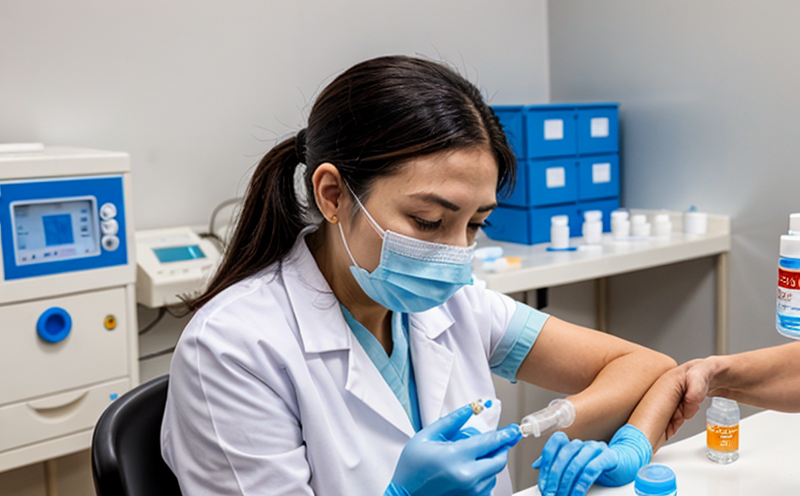ddPCR Residual DNA Quantification Testing
The demand for reliable and accurate residual DNA quantification in pharmaceutical testing has never been higher. This stringent requirement is especially critical within the vaccine sector, where even trace amounts of residual DNA can significantly impact product quality, safety, and regulatory compliance.
Our ddPCR Residual DNA Quantification Testing service utilizes digital droplet PCR (dDNA) technology to provide precise quantification. This approach ensures that even minute levels of residual DNA are accurately measured, offering unparalleled reliability for your vaccines. The testing process involves several stages: sample preparation, target amplification, and data analysis.
- Sample preparation includes thorough extraction and purification processes to ensure the integrity of the samples.
- The target is amplified using ddPCR technology, which allows for high-resolution quantification even at low concentrations.
- Data analysis provides robust statistical significance through multiple replicates, ensuring reliable results.
Our methodology adheres to international standards such as ISO 17025 and ASTM E2846. By leveraging these stringent protocols, we ensure that our testing is not only accurate but also compliant with global regulatory requirements.
The residual DNA quantification process can be particularly challenging due to the complex nature of biological samples. Our team of experts ensures that every step from sample collection to final analysis is conducted with utmost precision and care. This approach guarantees that you receive reliable, reproducible results.
Scope and Methodology
| Aspect | Details |
|---|---|
| Sample Preparation | Involves DNA extraction, purification, and quantification to ensure the integrity of the sample. |
| Droplet Generation | Create an equal number of droplets from the solution containing the target DNA. |
| Target Amplification | The PCR reaction is conducted in each droplet, targeting specific sequences for quantification. |
| Data Analysis | Analyze the distribution of positive and negative droplets to quantify residual DNA levels. |
Customer Impact and Satisfaction
Our ddPCR Residual DNA Quantification Testing service has been instrumental in enhancing the quality assurance processes for numerous pharmaceutical companies. By ensuring that residual DNA levels are within acceptable limits, we help our clients meet stringent regulatory requirements.
The high precision of this testing method allows manufacturers to identify and mitigate potential risks early in the development process. This not only enhances product safety but also supports smoother compliance with international standards such as ISO 14971:2019 on Medical Device Quality Management Systems.
Customer satisfaction is paramount, and we strive to exceed expectations through our commitment to excellence. Our team of experts provides detailed reports that not only document the results but also offer actionable insights for improvement.
Environmental and Sustainability Contributions
- The use of digital droplet PCR minimizes waste, as it requires minimal reagents and disposables compared to traditional PCR methods.
- Our testing process is designed to reduce the environmental footprint by optimizing resource usage.
- We adhere to ISO 14001:2015 standards for environmental management systems, ensuring sustainable practices across all our operations.
The precision and reliability of ddPCR residual DNA quantification testing contribute significantly to reducing the impact of manufacturing errors. By identifying issues early in development, we help minimize waste and optimize resource use, aligning with broader sustainability goals within the pharmaceutical industry.





